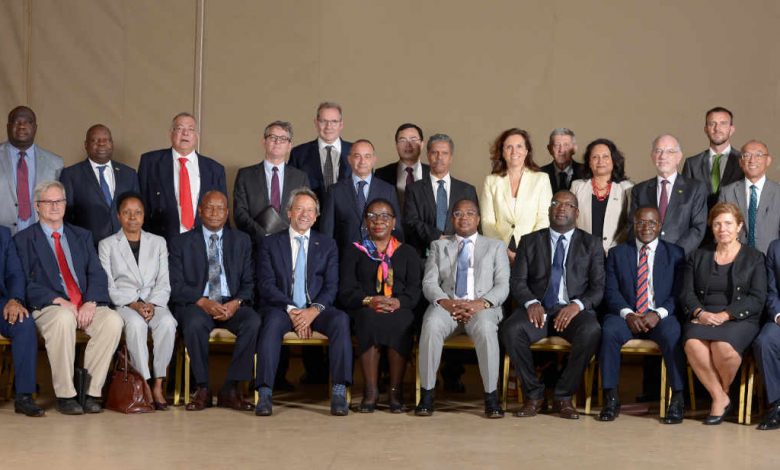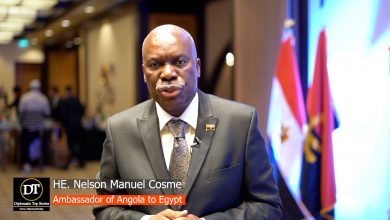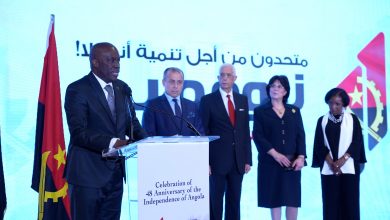African Development Bank Facilitates 3rd Meeting of the Structured Dialogue Platform in Harare on Zimbabwe’s arrears clearing and debt resolution process | African Development Bank

Diplomat.Today
The African Development Bank
2023-04-03 00:00:00
——————————————-
Zimbabwe moved closer to resolving its debt problems last week when it hosted the third meeting of the structured dialogue platform on debt elimination and arrears with development partners and creditors. Dr. Luisa Diogo, the former prime minister of Mozambique, was the facilitator of the meeting. Diogo is the lead technical adviser to Joaquim Chissano, the former president of Mozambique and high-level facilitator of the process.
In 2022, President Emmerson D. Mnangagwa appointed Dr. Akinwumi Adesina, president of the African Development Bank, championed the process of clearing arrears and resolving the country’s debts.
Finance and Economic Development Minister Professor Mthuli Ncube chaired and led a team of senior officials in this third collaboration with development partners and creditors, including the African Development Bank, facilitating the overall dialogue. Thursday’s technical meeting, which took place at Manna Resorts in Harare, followed two similar meetings held in Harare in December and February.
The meeting brought together three sector working groups: two previously established – one on macroeconomic growth and stability reforms, and another on governance reform – as well as a third new sector working group on land tenure reform, compensation of former farm owners and the resolution of Bilateral Investment Promotion and Protection Agreements (BIPPAs).
Secretary for Finance and Economic Development, George Guvamatanga, welcomed the delegates and reaffirmed the Zimbabwean government’s commitment to clearing arrears and resolving debt. He also said that the government is determined to implement the policy reforms resulting from the three reform matrices of the three sector working groups.
Diogo emphasized the determination of all partners to support Zimbabwe in solving its debt problems, saying: “We are not here to talk about Zimbabwe, but rather with Zimbabwe.”
Andrew Bvumbe, head of the Zimbabwe Public Debt Management Office, saw the progress and said there was genuine interest and commitment from all sides. “We are together in this endeavor and I think we can all agree that we have something to celebrate,” he said.
Development partners were generally satisfied with the process. They recognized the speed with which the sector working group on land tenure, the Global Compensation Deed and the resolution of the Bilateral Investment Promotion and Protection Agreements (BIPPAs) was created.
The meeting clarified the reform agenda of the three sector working groups. Participants agreed that an International Monetary Fund (IMF) staff-controlled program was an important part of the economic reform sector working group.
Ncube told participants that this staff-controlled program would realistically be implemented after Zimbabwe’s elections, expected later this year. He told the meeting — as did World Bank country manager Majorie Mpundu, who represented the economic reform working group — that a funded staff monitoring program was needed to ensure effective implementation of the program and reforms.
The Zimbabwean government has identified five priority areas requiring funding, namely education, social protection, health, agriculture and climate change.
Moono Mupotola, African Development Bank country manager for Zimbabwe, said it is possible that the Zimbabwe Fund for Development could serve as a potential resource to support the social sector.
“The African Development Bank proposes to lead the process of mapping the development needs of the social sector based on the implementation of an IMF-monitored program,” Mupotola said. She added: “The goal would be to understand where current social investments are being made and where the gaps are.”
 Mupotola suggested creating a working group to continue this initiative. She said the African Development Bank would rely on input from all development partners, and the team would then develop a concept note on the purpose and structure of a new Zimbabwe Fund for Development.
Mupotola suggested creating a working group to continue this initiative. She said the African Development Bank would rely on input from all development partners, and the team would then develop a concept note on the purpose and structure of a new Zimbabwe Fund for Development.
Ncube said the government would be happy to embrace this as an option, along with existing resources to fund such a program. He said the Zimbabwean government will continue to work closely with the African Development Bank.
The meeting also brought clarity to governance reform, highlighting the crucial role of the Zimbabwean constitution and the six pillars of Zimbabwean National Development Strategy 1 for the period 2021-2025.
In response to the indicators for the administrative reform matrix, the participants agreed on the indicators in three areas: administration of justice, electoral reform and peace and security.
They agreed on the need to streamline governance indicators and focus on concrete, feasible and deliverable sub-indicators. They also decided to work on rationalizing sub-indicators and dwell on scores rather than the indices themselves. Development partners have committed to consult their capitals to make a decision on this critical issue.
The sector working groups consist of joint teams from both the Zimbabwean government and various development partners, including international organisations.
Commenting on progress with the sector working group on land tenure reform, compensation of former farm owners and the resolution of BIPPAs, Ms. A. Tinarwo, Chief Director of the Office of the President and Cabinet, highlighted the group’s three priorities, namely the transferability and financeability of 99-year leases; execution of the global compensation deed; and creating a comprehensive database of farms covered by BIPPAs to enable rapid resolution.
 Tinarwo spoke of the vital need to build confidence in the transferability and financeability of tenure systems and to increase the commercial value of land. She said the 99-year leases should be reconsidered so that they are affordable and transferable, making them commercially viable. She added that this would allow farmers to raise capital in the markets and no longer depend on government support.
Tinarwo spoke of the vital need to build confidence in the transferability and financeability of tenure systems and to increase the commercial value of land. She said the 99-year leases should be reconsidered so that they are affordable and transferable, making them commercially viable. She added that this would allow farmers to raise capital in the markets and no longer depend on government support.
Ncube also informed the meeting that the government had presented a payment plan to form farm owners based on the Global Compensation Deed. He said it was waiting for their response through a referendum. He explained that the government would speed up resolution of BIPPAs and bring in ambassadors from affected countries.
The next meeting of the Structured Dialogue Platform will take place in Harare at the end of April/beginning of May and will be followed by a high-level meeting of the Debt Settlement Forum on 11e from May.
——————————————-



